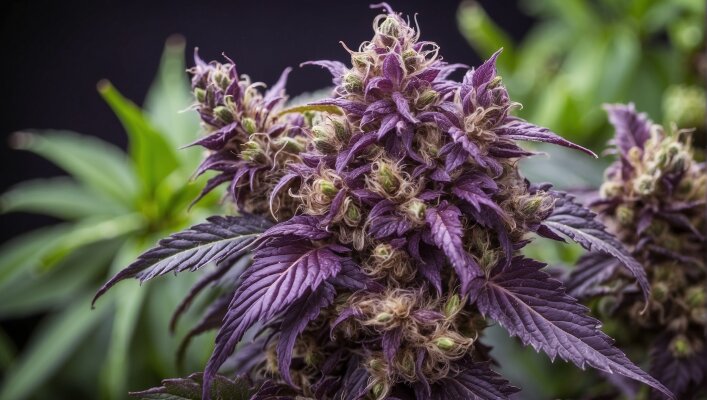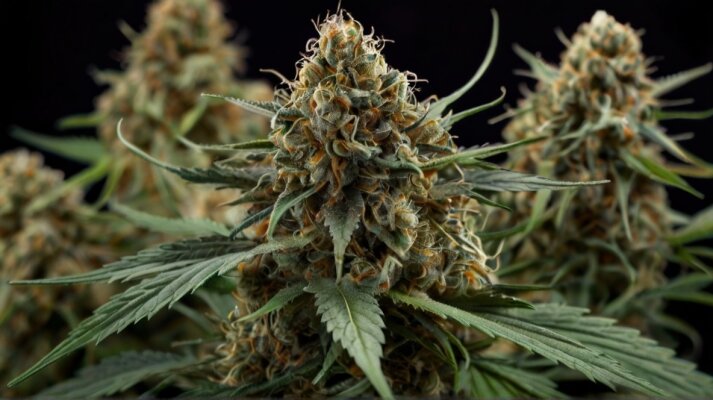Since 2017, doctors in Germany have been authorised to prescribe medicinal cannabis to chronically ill patients in order to alleviate pain. The cannabis medicines from controlled cultivation are intended to help all those for whom regular therapies are unsuccessful or cannot be used.
The aim is for patients suffering from pain to feel less pain by taking the products and benefit from an improved quality of life. For example, if you suffer from multiple sclerosis, or MS for short, the cannabinoids in the hemp plant can have an effect on the human endocannabinoid system and lead to a reduction in the intensity of your pain.
Whether and how strongly patients react to the cannabis products from the doctor must be tested on a case-by-case basis. For example, many patients react positively to the administration of cannabis, while other patients experience no pain relief.
But does medicinal cannabis work for everyone? What pain is it used for and what are cannabinoids?
Can weed relieve pain?
Is your everyday life characterised by pain and previous therapies have been unsuccessful? In addition to conventional treatment methods, doctors can prescribe medicinal cannabis for pain relief in exceptional cases.
Initially, this was only possible for spasticity and multiple sclerosis. However, the "Cannabis as Medicine" law has been in force since 2017. This means that the hemp plant can now be prescribed for numerous serious human illnesses.
Cannabis preparations such as oil, capsules, drops and oral sprays as well as cannabis flowers are considered medicinal products. If conventional painkillers no longer work for you, cannabis products can improve your quality of life and reduce the intensity of your pain.
Scientifically, an effect on nerve pain, neuropathy, has been established to date. However, there is no guarantee that patients will respond to medicines made from the hemp plant.
In the case of tumour diseases or multiple sclerosis, doctors can still prescribe cannabis preparations and test with you whether the cannabinoids provide relief. In many cases, cannabis therapy is the "last resort".
Cannabinoids can have an effect on both the body and the mind. As the psychosomatic cannabinoids are low-dose, there is said to be a low risk of becoming addicted. At the same time, the drugs are said to place less strain on organs such as the liver or kidneys than conventional medicines.
The best-known components of hemp are tetrahydrocannabinol (THC) and cannabidiol (CBD). THC can have a mood-enhancing effect and influence the sensation of pain. CBD can inhibit inflammation and have an antispasmodic effect. At the same time, it is possible that CBD can reduce anxiety.
Cannabis is said to be highly tolerable. The reason: your body produces endocannabinoids, whose CB1 and CB2 receptors are said to be able to receive the active cannabis ingredients from cannabis medicines, or CAM for short.
Until now, isolates such as dronabinol, ready-to-use medicines such as Canemes, cannabis extracts from controlled European cultivation or dried hemp flowers (cannabis flos) have generally been used. Cannabis flos and ready-made medicines such as Sativex contain both THC and CBD.
Are you suffering from a chronic illness and wondering whether cannabis therapy would be authorised by your health insurance provider in your individual case? In Germany, medical cannabis may only be dispensed if the patient fulfils certain criteria.
In order to receive CAM (cannabis as medicine), you must fulfil the following requirements:
You are suffering from a serious illness.
Standard therapies are unsuccessful or cannot be used.
There is reason to believe that CAM could positively influence the course of your illness and improve your quality of life.
How quickly does cannabis work for pain?
Before a doctor prescribes cannabis medicines, he or she first tests the current therapy methods. The reason: known therapies often help patients to relieve pain, while cannabis can only reduce pain to a limited extent. This is because every person reacts differently to the cannabis plant.
Pain therapists report that CAM led to pain relief in some patients, while the intensity of pain could not be influenced in others. The professional association for pain experts also points out that the pain-reducing effect of CAM is not present in all cases. CAMs may not be prescribed for heart disease, depression and other complaints.
However, although cannabis preparations do not reduce pain in all people, hemp does have some advantages. For example, the cannabinoids in hemp are similar to the cannabinoids that the human body produces itself. The preparations can take effect after 10 to 60 minutes.
The products are made from male or female hemp plants. Recognising the male hemp plant requires a certain amount of experience. The plant is often larger than its female counterpart.
What pain is medicinal cannabis used for?
Are you writhing in pain and can hardly remember a life without cramps or headaches? Many patients have a long history of suffering and have often tried in vain to control their illness with numerous therapies. The illness becomes an emotional burden.
If no conventional therapies help, your doctor may rely on the power of cannabinoids. But which laws apply in Germany and for which illnesses are CAM used?
Legal framework in Germany
If a doctor in Germany prescribes cannabis for medical purposes, they must send a written justification to the health insurance company to ensure that the costs are covered. In Germany, doctors are only allowed to prescribe cannabis in exceptional cases.
At the same time, as a patient you must undertake to take part in accompanying research. In this way, medicine hopes to collect further data on the effects of cannabinoids.
For which diseases can cannabis be prescribed?
It is now recognised that cannabis can have a relaxing and pain-relieving effect. However, there are no long-term study results on the basis of which the treating doctor can make an indication. In Germany, cannabis medicines have so far been used for 40 different diseases such as HIV, cancer, sleep disorders, anxiety disorders and chronic pain.
For many patients, cannabis preparations are an alternative to strong opioids. The BfArM confirms that the administration of CAM to cannabis flower patients can lead to fewer opioids having to be used.
If you suffer from pain, you should know that Cannabis cannot fully relieve your pain. But it can succeed in reducing it. According to the German Pain Society, CAM has hardly any effect on patients with acute pain or tissue pain. In the case of neuropathic pain, however, CAM can lead to pain relief in certain cases.
To reduce the risk of addiction, medicinal cannabis preparations contain low concentrations of THC. This is because THC binds to CB1 in the brain. As a result, happiness hormones are released. CBD, on the other hand, can prevent THC from binding to the receptors and relieve pain at the same time.
As medicinal cannabis works differently for each person, there are no recommendations for dosages. The doctor literally tests whether you can tolerate cannabis and to what extent it needs to be administered.
CAM is used for the following diseases, among others
- Multiple sclerosis
- Crohn's disease
- ulcerative colitis
- Chronic pain
- epilepsy
- glaucoma
- Nausea and vomiting in oncology patients
- Post-traumatic stress disorder (PTSD)
Cannabinoids and their effect on pain
Your body can produce cannabinoids itself. The cannabinoid receptors type 1 and type 2 are located in the nervous system and in the immune, reproductive and digestive systems as well as in the skin, bones, eyes and lungs. Research is currently focussing increasingly on type 1 receptors.
The cannabinoids produced by the human body are known as endocannabinoids. They dock onto the same receptors as the cannabinoids that you ingest via medication.
What are cannabinoids?
Cannabinoids are messenger substances. The human body has cannabinoid receptors to which cannabinoids such as delta-9-tetrahydrogencannabinol and cannabidiol, cannabinol and cannabichromene can bind. They act on the cannabinoid system.
Cannabinoids are also found in hemp. These can bind to the same receptors in the human body.
These cannabinoids exist
Around 120 cannabinoids are currently known. However, research is still in its infancy, so that no exact figure can be given. The best-known cannabinoids are THC and CBD. Medicines containing THC are considered narcotics.
How the pain-relieving effect works
Psychoactive cannabinoids such as THC can influence your emotions and brighten your mood. THC can contribute to relaxation, but can also be addictive. Cannabinoids such as CBD, on the other hand, have no intoxicating effect. However, they are considered antispasmodic and pain-relieving.
Information on the effects of cannabinoids cannot be provided at this time. However, it is to be expected that studies will be carried out in the coming years, as the pharmaceutical industry's interest in CBD and co. is growing and cannabis has been used since 2017 in patients for whom other therapies have shown no effect.
FAQ
Can weed increase pain?
Cannabis is said to be able to relieve pain.
What is weed prescribed for?
CAM can be used, among other things, when patients suffer from chronic pain, multiple sclerosis or Crohn's disease.
Is weed a painkiller?
Since 2017, cannabis from controlled cultivation can be prescribed as a medicine. These are said to be able to alleviate pain.
The bottom line - finally pain-free thanks to cannabis?
Before those affected find help, they often go through a long ordeal: chronic illnesses, Crohn's disease, multiple sclerosis or PTSD restrict patients' quality of life and can prove to be a psychological challenge.
Those affected often hope that the new cannabis medicines, which can be prescribed by doctors and are seen as a "last resort", will have a pain-relieving effect. The medicines have been authorised for use since 2017, provided the doctor can justify the prescription and the health insurance company accepts this justification.
The cannabinoids from hemp from controlled cannabis cultivation within the EU are similar to the endocannabinoids from the human body. They dock onto the receptors and are said to be able to alleviate pain, anxiety and the like. The best-known cannabinoids are THC and CBD.
As science is still in its infancy, no reliable studies are yet available. However, due to the great interest of the pharmaceutical industry, it can be assumed that funds will flow into cannabis research in the future.
















